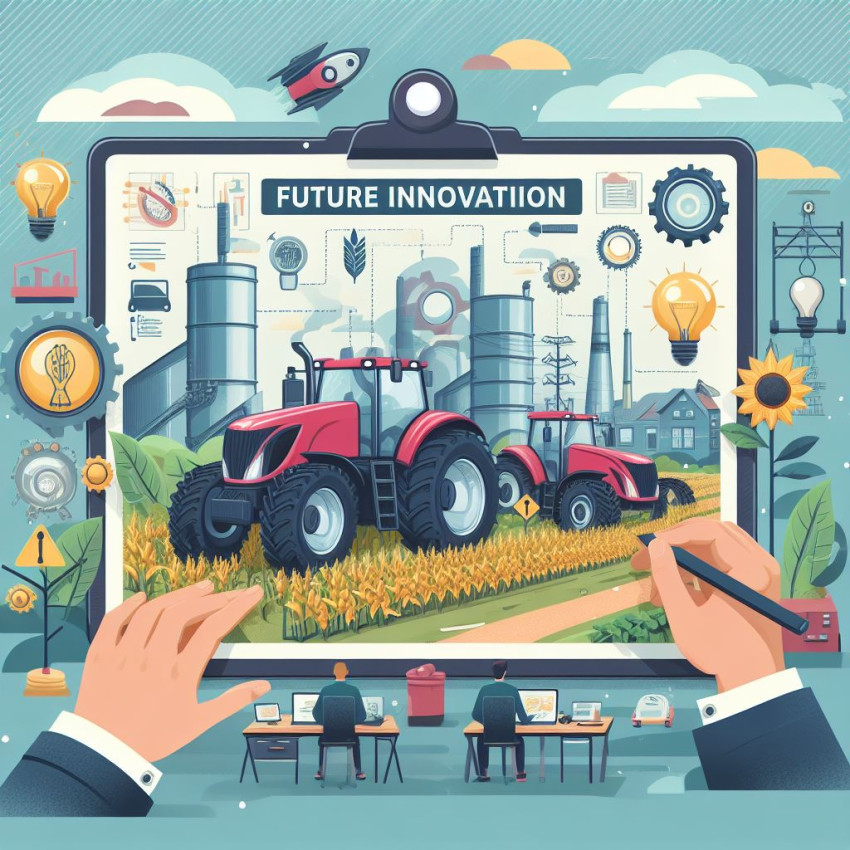
The agricultural sector has always been at the forefront of technological innovation, and the tractor industry is no exception. With the global population expected to surpass 9 billion by 2050, the demand for food is projected to rise significantly. This necessitates continuous advancements in agricultural machinery to improve efficiency, productivity, and sustainability. In this article, we will explore the future innovations shaping the tractor industry.
Advancements in Tractor Design
Autonomous Tractors
One of the most significant advancements in the tractor industry is the development of autonomous tractors. These vehicles utilize advanced sensors, GPS technology, and artificial intelligence to perform various tasks autonomously, such as plowing, seeding, and harvesting. By eliminating the need for human operators, autonomous tractors can optimize field operations, reduce labor costs, and enhance productivity.
Electric and Hybrid Tractors
Another trend driving innovation in the tractor industry is the shift towards electric and hybrid-powered tractors. With growing concerns about climate change and emissions, manufacturers are investing in alternative propulsion systems to reduce the environmental impact of farming operations. Electric and hybrid tractors offer lower operating costs, reduced noise levels, and zero tailpipe emissions, making them an attractive option for environmentally conscious farmers.
Precision Agriculture Technologies
GPS Guidance Systems
Precision agriculture technologies, such as GPS guidance systems, are revolutionizing modern farming practices. These systems enable farmers to precisely control the movement of tractors and other machinery, resulting in more accurate planting, fertilizing, and spraying. By optimizing input use and minimizing overlaps, GPS guidance systems help farmers improve crop yields while reducing waste and environmental impact.
Data Analytics and AI in Farming
Furthermore, the integration of data analytics and artificial intelligence (AI) in farming is transforming how tractors are utilized in the field. By analyzing vast amounts of data, including soil conditions, weather patterns, and crop health, AI-powered systems can provide farmers with valuable insights and recommendations for optimizing their operations. This enables proactive decision-making and enhances overall farm efficiency and profitability.
Sustainable Practices in Tractor Manufacturing
Eco-Friendly Materials
In addition to technological advancements, there is a growing focus on sustainability in tractor manufacturing. Manufacturers are increasingly using eco-friendly materials, such as recycled plastics and bio-based composites, to reduce the environmental footprint of their products. By adopting sustainable practices throughout the supply chain, the tractor industry can minimize resource consumption and waste generation while promoting environmental stewardship.
Energy-Efficient Technologies
Moreover, energy-efficient technologies are playing a crucial role in reducing the carbon footprint of tractor manufacturing and operation. From engine optimization and aerodynamic design to hybrid powertrains and regenerative braking systems, advancements in energy efficiency are enabling tractors to operate more sustainably while maintaining performance and reliability.
Impact of Digitalization on Tractor Industry
Connectivity Features in Tractors
Digitalization is also reshaping the tractor industry by introducing connectivity features that enable real-time monitoring and remote control capabilities. Modern tractors are equipped with sensors and onboard computers that collect data on various parameters, such as engine performance, fuel efficiency, and soil conditions. This data can be transmitted wirelessly to farm management systems, allowing farmers to monitor and optimize tractor operations from anywhere.
Telematics for Remote Monitoring
Furthermore, telematics systems are enabling remote monitoring and diagnostics of tractor fleets, leading to improved maintenance practices and uptime. By providing insights into equipment health and performance, telematics solutions help farmers minimize downtime, reduce repair costs, and maximize productivity. Additionally, predictive analytics algorithms can anticipate potential issues and schedule maintenance proactively, further enhancing reliability and efficiency.
Future Challenges and Opportunities
Despite the promising advancements in the tractor industry, there are several challenges that need to be addressed to realize the full potential of future innovations. Regulatory hurdles, such as safety standards and certification requirements for autonomous tractors, may slow down adoption rates and innovation. Moreover, the cost of advanced technologies and the digital divide in rural areas could hinder accessibility for small-scale farmers.
However, these challenges also present opportunities for collaboration and innovation within the industry. By partnering with policymakers, academia, and technology providers, tractor manufacturers can overcome regulatory barriers and accelerate the adoption of new technologies. Additionally, initiatives to promote digital literacy and infrastructure development in rural communities can help bridge the digital divide and ensure that all farmers can benefit from future innovations.
Conclusion
In conclusion, the future of the tractor industry is driven by innovation, sustainability, and digitalization. Advancements in tractor design, precision agriculture technologies, and sustainable practices are transforming farming operations and enabling farmers to produce more with less. However, addressing regulatory challenges and ensuring accessibility for all farmers will be crucial to realizing the full potential of future innovations in the tractor industry.


